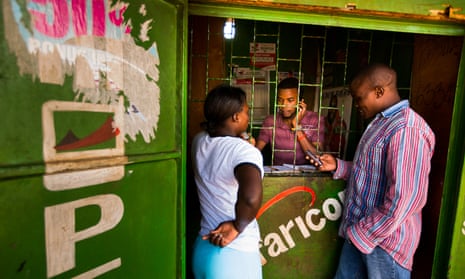The rapid spread of the internet and mobile phones around the globe has failed to deliver the expected boost to jobs and growth, the World Bank has revealed in a report that highlights a growing digital divide between rich and poor.
The Bank said no other technology has reached more people in so short a time as the internet, but warned that the development potential of technological change had yet to be reaped.
According to the Bank’s new “World Development Report 2016: Digital Dividends”, the number of people connected to the internet has more than tripled in the past decade, from 1 billion to an estimated 3.5 billion. In many developing countries, more families own a mobile phone than have access to electricity or clean water.
But the report said the benefits of rapid digital expansion had been skewed towards the better-off and the more highly skilled, who were better able to take advantage of the new technologies. By comparison, 4 billion people – or 60% of the world’s population – had no access to the internet.
“Digital technologies are transforming the worlds of business, work and government,” said Jim Yong Kim, the World Bank’s president. “We must continue to connect everyone and leave no one behind, because the cost of lost opportunities is enormous.
“But for digital dividends to be widely shared among all parts of society, countries also need to improve their business climate, invest in people’s education and health, and promote good governance.”
The Bank said digital technology could be transformational. It said 40% of adults in east Africa pay utility bills using a mobile phone, while 8 million entrepreneurs in China – a third of them women – use an e-commerce platform to sell goods domestically and export to 120 countries. The report said text messages were proving useful in reminding people with HIV to take life-saving drugs, while teacher absenteeism in Uganda had been tackled by headteachers using mobile phones to monitor attendance and transmit data to a central database.
Even so, the effect of technology on global productivity, expansion of opportunity for the poor and middle class, and the spread of accountable governance had been less than expected. Digital technologies were spreading rapidly, but digital dividends – growth, jobs and services – had lagged behind.
The Bank said the digital divide should be closed by making the internet universal, affordable, open and safe. It also said that delivering the development potential of new technology would require regulations to ensure competition among business, action to improve skills, and more accountable institutions.
Kaushik Basu, the Bank’s chief economist, said: “It is an amazing transformation that today 40% of the world’s population is connected by the internet. While these achievements are to be celebrated, this is also occasion to be mindful that we do not create a new underclass.
“With nearly 20% of the world’s population unable to read and write, the spread of digital technologies alone is unlikely to spell the end of the global knowledge divide.”

Comments (…)
Sign in or create your Guardian account to join the discussion